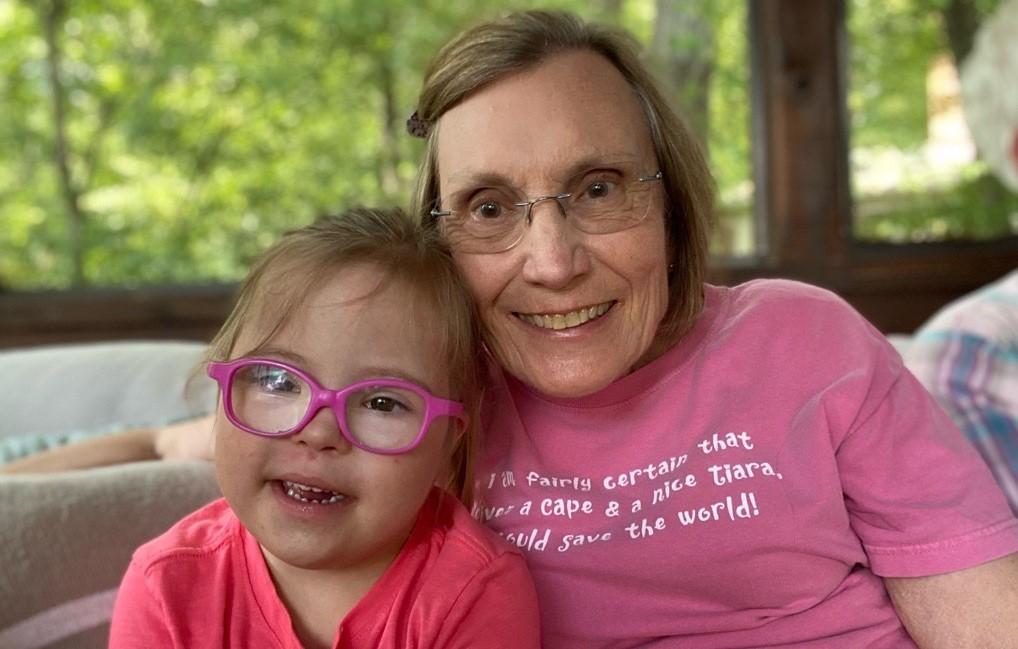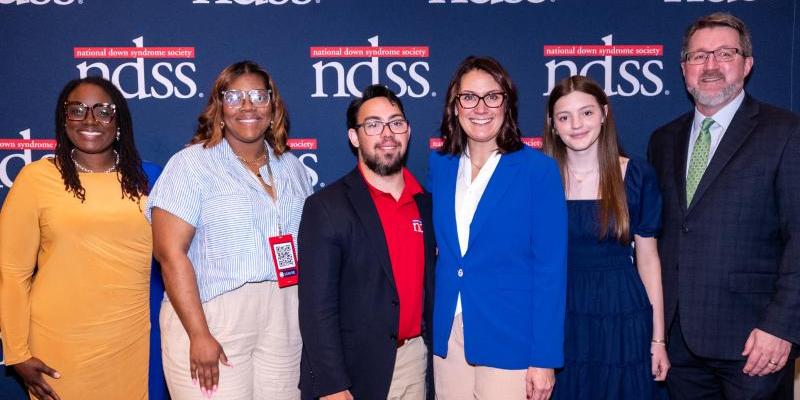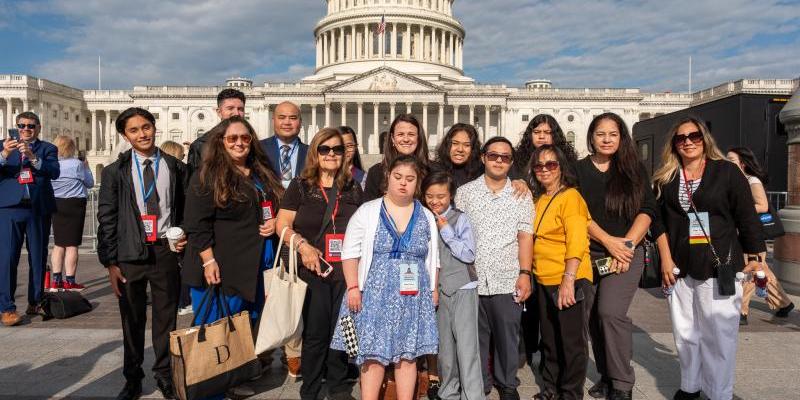Legacy giving or planned giving is a meaningful way you can impact the future of individuals with Down syndrome while you and your family receive the benefits of smart financial planning.
Ensure a brighter future for individuals with Down syndrome.
NDSS envisions a world in which all people with Down syndrome have the opportunity to enhance their quality of life, realize their life aspirations, and become valued members of welcoming communities. Your legacy can make that vision a reality.

A legacy gift could be your most powerful and lasting contribution, improving the way babies with Down syndrome are welcomed; changing the way schools, businesses, and communities include our loved ones; and ensuring our adults have the care they need to live rewarding healthy lives as they age.
If you choose to leave a planned gift to the National Down Syndrome Society, or have already done so, please let us know. We would be honored to recognize your extraordinary commitment as a member of our NDSS Legacy Society.
Charitable gifts, especially legacy gifts, require thoughtful planning. For a confidential conversation, please call or email our team at donations@ndss.org.
Address and Tax ID
To assist you with your gift and estate planning, the official name, address, and tax ID for NDSS is:
National Down Syndrome Society
155 15th Street NW, Suite 540
Washington, DC 20005
EIN/Tax ID: 13-2992567
Make a Lasting Impact

Deferred Giving – support NDSS in the future
Designating Accounts – Choose NDSS as a remainder beneficiary of your life insurance plan, retirement account, bank account, or other assets.
Bequests – Gifts through your will or trust don’t require any contribution now and enable you to plan for leaving a meaningful legacy in the future.
Immediate Giving – support NDSS today
Qualified Charitable Distribution (QCDs) - Donors aged 70 1/2 and older can decrease their taxable income by donating directly from their IRA.
Stock Donation – Gifts of appreciated securities can help you avoid capital gains tax and receive a charitable income tax deduction when you itemize.
Donor-Advised Funds (DAF) – You can provide support through your DAF today and into the future.
This information is not intended as legal, financial, or other professional advice. For assistance in charitable or estate planning, consult a lawyer or other qualified professional.
Designating Accounts
Have you updated your legacy-planning strategy to include NDSS as a remainder beneficiary? It can take as little as 10 minutes to make a lasting impact by adding NDSS as a remainder beneficiary. You can designate NDSS as a beneficiary for:
- Retirement plans: 401(k), 403 (b), IRA
- Life insurance policies
- Donor-advised funds
- Commercial annuities
- Bank accounts
When you're ready, making an organization the beneficiary of your assets is generally straightforward:
- Request and fill out a designated beneficiary form through your employer or your plan administrator. Most banks and financial firms also have beneficiary forms, or they can provide you with suggested language for naming beneficiaries to your accounts. Many forms are available online and can be quickly modified by logging into your account.
- On the beneficiary form, decide what percentage (up to 100%) you would like us to receive and name National Down Syndrome Society as the beneficiary. Please use our Federal Tax Identification number: 13-2992567 in place of a social security number.
- Once the designated beneficiary forms are in place, the retirement assets will generally pass directly to your beneficiaries (including organizations like NDSS) without issue.
Your investment will help NDSS be responsive to the changing needs of our community and address their needs today, tomorrow, and for decades to come.
Bequests
A simple way to establish your legacy is to designate National Down Syndrome Society as a beneficiary of your will and trust. You can designate a specific dollar amount, a particular asset, such as securities or real estate, or leave a percentage of your estate, or the residual of your estate, after providing for loved ones.
Specific Bequests allow you to designate a percentage of your estate, a dollar amount, or specified assets as a gift to NDSS.
Residual Bequests allow you to designate the remaining residue of your estate as a gift to NDSS, after the payment of all expenses and specific bequests to other beneficiaries have been made.
Click here to download sample language and more information about bequests
Qualified Charitable Distribution (QCDs)
A qualified charitable distribution (QCD) is for donors aged 70 1/2 and older to decrease their taxable income by donating directly from their IRA. You can contribute up to $100,000 a year, and it may satisfy your required minimum distribution. How it works:
- Contact your IRA plan administrator to make a gift from your IRA to National Down Syndrome Society
- Your IRA funds will be directly transferred to NDSS to help continue our important work
- Please note that IRA charitable rollover gifts do not qualify for a charitable deduction
- Please contact us if you wish for your gift to be used for a specific purpose
Stock Donation
If you’re looking for a tax-smart way to leave your legacy, consider a gift of stock. When you donate appreciated securities that you’ve owned for more than one year, you can avoid capital gains tax and receive a charitable income tax deduction when you itemize.
Download our stock transfer instructions here
Donor-Advised Funds (DAF)
You can initiate a grant recommendation from your donor-advised fund (DAF) directly to NDSS in three easy ways: make a one-time gift, establish an automatic recurring gift, or designate National Down Syndrome Society as a beneficiary of all or a portion of your remaining DAF funds in the future.
Contact Us
Please reach out to our team at donations@ndss.org for a confidential conversation about how you can make a personal legacy gift to support the Down syndrome community through NDSS. Phone: 800-221-4602
National Down Syndrome Society
1155 15th Street NW, Suite 540
Washington, DC 20005
EIN/tax ID number: 13-2992567
Your personal financial situation is unique, so we encourage you to talk to your financial or legal advisor before making a gift of bequest or creating a legacy through planned giving.
All inquiries are welcome and held in the strictest confidence. You are never obligated to make a gift. This information is not and should not be construed as legal advice. State laws vary. Consult an attorney when preparing your estate and other long-term planning documents.







